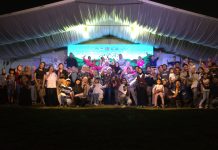The twin sparrows living in the air-conditioning compressors of my porch never had it so good.
Each time we opened our doors to leave for work at 7am, this pair would fly off from their self-made home to a tree nearby and watch us leave for office.
But these days they seem to have taken life easier and are in their nests longer, as though the Movement Control Order (MCO) issued by the Malaysian government since March 18, also applies to them.
[expander_maker id=”2″ more=”Read more” less=”Read less”]
Not forgetting the friendly neighbourhood “biawaks” in my residential area. There are a few of them that have newfound freedom to move around along the roads, back lanes and drains without any human interference.
Just two days ago, there was a troop of about 20 monkeys seen dashing across the road along Taman Merdeka in Johor Bahru, oblivion to the fact that were still cars on the roads.
Yes. Nature has its way.
In the past humans have terrified these animals, often giving them no space to co-exist with mankind. However, since March 18, while life is miserable for many of us staying within the four walls of the house and getting frustrated and touchy over everything, it is a welcome change for these animals and mother nature.
While the fear of the deadly virus and MCO have grounded us, it has given Nature and these creatures a new lease of life. Lesser traffic means reduced pollution. The air around us seems to be getting better. The skies are clearer with hardly any planes taking off worldwide. Johor Bahru skies have been clear without any visible air traffic since March 18th.
Some see this as God’s way of telling humans that we don’t own everything around us. Co-existence with other species is a reality and must be respected.
This scenario seems to be common not only here, but worldwide.
For instance, data analysis by the Copernicus Sentinel-5P satellite reveals a significant decline of the air pollution across Italy, particularly visible across northern Italy where normally high values of nitrogen dioxide (NO2) emissions are observed.
This is a factual effect of the nationwide lockdown to prevent the spread of the Covid-19.
In China, measures to contain the virus in February alone caused a drop in carbon emissions of an estimated 25 percent. The Center for Research on Energy and Clean Air estimates that this is equivalent to 200 million tons of carbon dioxide — more than half the annual emissions of Britain. China contributes 30% of the world’s CO2 emissions annually, so even a brief drop can have an impact.
These effects aren’t wholly unexpected. History suggests that global disasters, particularly those with major effects on the economy, tend to drive a temporary decline in carbon emissions. The 2008 recession, for instance, was accompanied by a temporary dip in global carbon emissions.
Pictures of Otters roaming freely in the parks of Singapore have and geese crossing the tarmac of Tel Aviv Airport in Israel have also emerged recently with movement controls and lockdowns throughout the world.
All this points to one thing – Covid 19 is a dreaded virus – but it has also shown that we don’t own the world. There are others too, as my twin sparrows and neighbourhood biawaks, whose co-existence we need to respect and give them space.
In short, humans all over must stop the wanton destruction that has been taking place all this while.
But the question is, Will Mankind Ever Learn, whether in Johor, Malaysia or elsewhere?
* The views expressed are opinions of the writer and do not necessarily reflect the stand of the newspaper’s owners and editorial board.
[/expander_maker]



